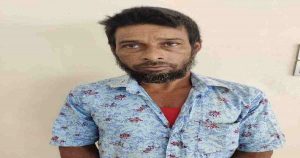By Nava Thakuria
The working journalists, more particularly the reporters covering insurgency related incidents, always face a two-edged sword. Often they face brickbats (reader threats) from both the insurgents turned terrorists and also the authority in power that implements counter-insurgency operations.
The media has every right to report about insurgencies and so the reporters may maintain contacts with the militants belonging to the banned armed outfits too. But the question that arises here if that privilege empowers the journalists ‘to give inputs’ to the militants that might include the ‘target for extorting money or punishing for spying to the authorities’.If the media houses can not be punished for ‘receiving a mail’ from the outlawed militant groups, can they ‘forward’ the same mail to someone even for the reporting purpose? This is one practice, journalists in conflict zones sometimes adopt out of their ignorance if not for any selfish interest.
All these questions, which were raised, debated and defined among Guwahati based journalists decades back during the heyday of banned United Liberation Front of Assam (ULFA) that put whole Assam in troubles in Nineties, has emerged once again following the arrest of Jaikhlong Brahma, a Kokrajhar based television journalist on 2 September 2014.
Brahma is still in the judicial custody even after the Guwahati High Court quashed his detention under National Security Act (NSA) of India, as he has few other cases to deal with. The higher court in an order on October 22 directed the government to release Brahma if he is not wanted in any other case.
The television scribe was arrested under several sections of IPC and Unlawful Activities (Prevention) Act and he was produced before the Chief Judicial Magistrate, Kokrajhar on September 3. After five days in police custody, Brahma was again produced before the court of Kokrajhar CJM, where he was given the judicial custody. Later the 44 years old journalist was detained under NSA on September 9.
The arrest of Brahma, who is working for the privately owned satellite channel NewsLive, led to massive protests across Assam by media organisations. The major one was organised by Kokrajhar Press Club on September 8, where over 800 people including non-media persons were present and they unanimously demanded Brahma’s unconditional release.
One more television journalist (Rinoy Basumatary) from Kokrajhar in western Assam, who works for another Guwahati based satellite channel NewsTimeAssam, also faced an arrest warrant from the police for the same offence. The police had raided his residence in connection with the case and Basumatary continues to be absconding since then.
Brahma rejected the allegations leveled by the police that he was involved in ‘providing information about the movement of security personnel engaged in counter-insurgency operations to the militants belonging to National Democratic Front of Bodoland (IK Songbijit faction)’. The Kokrajhar based journalists also said that neither Brahma nor any scribe from their locality was instigating the
militants compromising national security.
A protest meeting was also organised at Guwahati Press Club on September 4 that urged the Tarun Gogoi-led Congress government in Dispur to release Brahma and withdraw Basumatary’s arrest warrant.
Speakers at the meeting categorically declared that they never glorify the insurgents’ terror acts and strongly argued that a journalist has the right to communicate the insurgent leaders for reporting purposes and only for that reason, he or she must not be made accountable.
Two international media persons’ organisations also came come out with statements deploring the arrest of Brahma. The International Federation of Journalists (IFJ), while condemning the Assam government for the arrest, insisted on Brahma’s immediate release.
“We demand an immediate and fair investigation into the matter. The rights of the media to report are clear in India’s Constitution and a journalist should not be arrested for simply reporting on the information they disseminate,” said an IFJ statement issued from it’s headquarter in Brussels.
The Committee to Protect Journalists (CPJ) also expressed concern over the arrest of Brahma and arrest warrant against Basumatary. The media persons’ rights body headquartered in New York called on the authority to ‘publicly disclose the evidence’ used to hold Brahma in custody.
“Accusations of compromising national security are a common method used by Indian authorities to silence local journalists. CPJ research shows that several journalists including Aseem Trivedi, Sudhir Dhawale and Lingaram Kodopi have been arrested on anti-State charges in recent years. All three were eventually freed,” said a CPJ statement.
Amnesty International too joined the chorus against the authorities putting Brahma under the NSA. The international rights body in a strongly worded statement pointed out that the NSA, enacted in 1980 by the Indian Union government, has the provision ‘to detain individuals by executive order without charge or trial, and denies them the safeguards of a fair trial as required under international law’.
The Kokrajhar based journalists, who met the State chief minister Gogoi, asserted that they do not support any militant groups. Stating that the police had no concrete evidence against Brahma and Basumatary supporting unlawful links with the separatist militants, the journo team reiterated their demand to release Brahma and withdraw the arrest warrant against Basumatary at the earliest.
(The author – based in Guwahati, Assam – is Secretary, Asia Pacific Forum of Environmental Journalists.)




